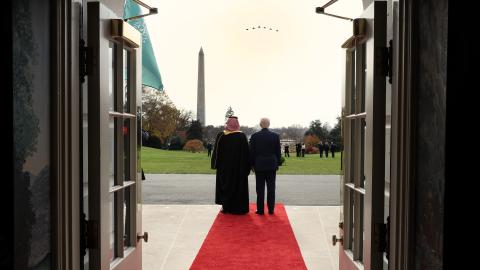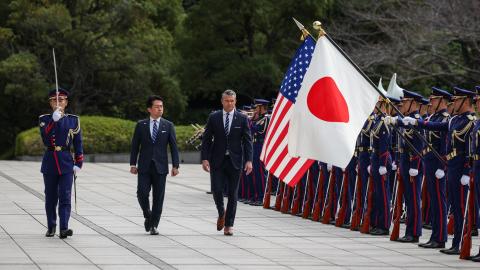
Ryan Tully
Former Senior Fellow

21
October 2024
Past Event
Relearning Escalation Dynamics to Win the New Cold War
Featured Speakers:
Rebeccah L. Heinrichs
Kyle Balzer
Matthew Costlow
Ryan Tully

21
October 2024
Past Event
Relearning Escalation Dynamics to Win the New Cold War
Rebeccah L. Heinrichs will sit down for a conversation on the path forward for Washington in a new era of strategic competition with the coauthors of Relearning Escalation Dynamics to Win the New Cold War.

Featured Speakers:
Rebeccah L. Heinrichs
Kyle Balzer
Matthew Costlow
Ryan Tully
Sort by:
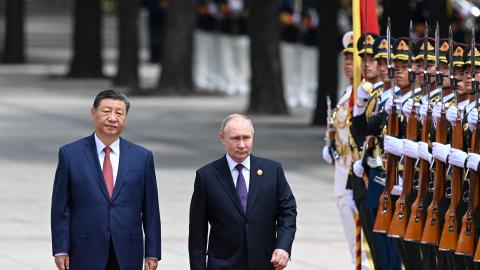
Caption
Russia's President Vladimir Putin and China's President Xi Jinping attend an official welcoming ceremony in Beijing on May 16, 2024. (Sergei Bobylov/AFP via Getty Images)

Caption
A B-2A Spirit bomber assigned to the 509th Bomb Wing leads a delta formation consisting of two F-15C Eagles assigned to the 48th Fighter Wing and two Royal Air Force F-35B Lightnings as they conduct aerial operations over the North Sea on September 16, 2019. (US Air Force)
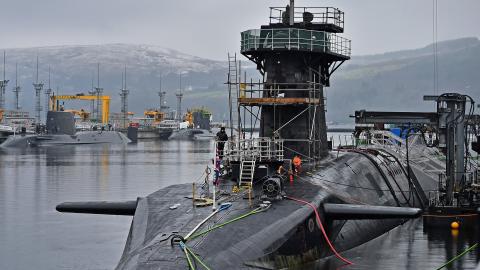
Caption
Royal Navy security personnel stand guard on HMS Vigilant at Her Majesty's Naval Base on January 20, 2016, in Rhu, Scotland. (Jeff J. Mitchell via Getty Images)
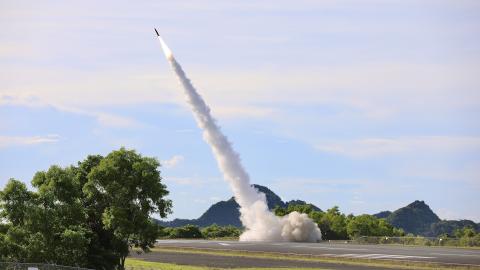
Caption
A Tennessee National Guard regiment employs the US Army Autonomous Multi-Domain Launcher (AML) and the Precision Strike Missile (PrSM) on June 16, 2024, in Palau. (US Army)

Caption
A 550-ton outer dome is hoisted in place at the construction site of the world's first commercial small modular reactor, Linglong One, on February 6, 2024, in Hainan Province, China. (Photo by Luo Yunfei/China News Service/VCG via Getty Images)
